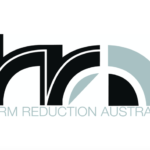NSW Government’s Relentless Attack on Our Right to Protest

The language used by NSW agriculture minister Adam Marshall as he introduced the Right to Farm Bill 2019 was somewhat suspect when he asserted that the legislation would “enshrine in law a farmer’s right to farm their land, to grow the food and fibre to feed and clothe” people.
This was dubious because no one has been trying to prevent farmers from growing food. Rather, what animals’ rights activists have been up to is trying to bring a halt to cruel practices perpetrated upon animals in factory farming operations and slaughterhouses.
On the recommendation of the Morrison government, the Right to Farm legislation takes aim at “vegan vigilantes”, who are trying to expose practices that could be outlawed if the public had a better understanding of what’s taking place.
However, the legislation goes much further than that. It also targets the right to protest in general, as the draconian amendments it makes to the Inclosed Lands Protection Act 1901 (NSW) can be used against protesters of any ilk, including farmers protesting the mining industry.
So, while the federal government has pushed for all states to prioritise cracking down on animal rights activists, the Berejiklian government has seen fit to take the opportunity to continue the NSW Liberal Nationals’ decade-long project of silencing dissent.
Farms, mines, coal seam gas… you name it
“Civil organisations – including environmental groups – unions and civil liberties bodies oppose these changes because they would further limit people’s right to peaceful protest, a cornerstone of our democracy,” Nature Conservation Council chief executive Chris Gambian made clear.
“If this bill becomes law in its current form, it would almost quadruple the penalty for aggravated unlawful entry on inclosed lands,” he added, pointing to the law the legislation would amend, which has implications for protest actions in general.
Section 4B of the Inclosed Lands Protection Act contains the offence of aggravated trespass on inclosed lands. When the Baird government created the crime in March 2016, it was condemned for increasing trespass penalties by tenfold, in a bid to protect mining interests.
And while the Right to Farm Bill is ostensibly about farms, the inclosed lands the aggravated trespass law applies to is defined as “any land, either public or private, inclosed or surrounded by any fence, wall or other erection, or partly by a fence, wall or other erection”, and this also includes buildings.
Baird upped penalties applying to inclosed land trespassing from $550 to $5,500. But, Berejiklian’s now increasing penalties to $13,200 and/or 12 months imprisonment for a sole intruder, and for a person accompanied by 2 or more people, they’re looking at $22,000 and/or 3 years inside.
“The very large increases in fines and the addition of prison terms are – in our view – harsh, disproportionate and unnecessary given that sufficient penalties already exist for these offences,” Mr Gambian told Sydney Criminal Lawyers.
A further hindrance
However, the Coalition isn’t stopping there. It’s also reducing the seriousness of what can constitute an aggravated offence, as opposed to regular trespassing on inclosed lands, which can set a person back by around $550 to $1,100 if they’re convicted.
The actions that constitute aggravated trespass have already been increased since the law was first enacted. Initially, the offence involved interfering with business or risking a person’s safety. But, it’s since been broadened and includes “a biosecurity impact”, which specifically targets farm protests.
And the new legislation adds fresh provisions to when the law applies as well. These are for property damages and “wilfully or negligently” releasing livestock. So, the Liberal Nationals have pretty much got all bases covered when it comes to actions on farms carried out by animal rights activists.
So, it’s a bit uncertain as to why the government would need to add “hinder” to the provision preventing business interference, as the Right to Farm Bill is proposing to do. But, as far as Mr Gambian is concerned, it’s all about lowering the threshold of what comprises a breach.
“This multiplies the risks for anyone engaged in peaceful protest and will have a chilling effect on freedom of speech and the right to political expression that the High Court has ruled is implied by the Australian Constitution,” the environmental campaigner emphasised.
Ag-gag provisions
“The bill goes much further than just increasing penalties for farm trespass,” warned NSW Animal Justice Party MLC Emma Hurst. It would also “make it an offence to direct, incite, counsel, procure or induce aggravated trespass.”
The Right to Farm Bill would insert new section 4C into the Inclosed Lands Protections Act, which involves individuals found to have encouraged others to commit aggravated trespass on inclosed land being liable to a fine of $11,000 and/or incarceration of up to a year.
“This has the potential to impact on the rights of peaceful protestors and silence whistleblowers,” Ms Hurst added, “even those who work in such facilities.”
This measure is in response to animal rights organisation Aussie Farms launching of an interactive map in January. It details the locations and basic information about factory farms, slaughterhouses and “other animal exploitation facilities” around the country.
And as Hurst pointed out soon after the agricultural minister first spruiked this ag-gag measure, the ever-increasing laws being passed to prevent disclosure of information relating to the animal agribusiness is leading the community to ask questions about what they’re trying to hide.
Unnecessary nuisance
Ms Hurst also questioned the nuisance laws that the farming legislation would create. The bill not only amends inclosed land laws, but it also creates The Right to Farm Act. And it establishes a “nuisance shield” to supposedly protect farmers.
Section 4 of the proposed Right to Farm Act prevents individuals from bringing civil action in response to a nuisance caused by a farm if the activity involved is lawful. As Hurst explained, this could involve “odour, chemical spray drifting or the use of poisons, like 1080”.
And section 5 of the Act stipulates that if a court finds a farming activity raised in a civil action is a nuisance, then it can’t simply order it to be ceased, rather the court must consider any alternative orders available.
“The question is, is such a law required?” Ms Hurst asked. “There’s no evidence or statistics that nuisance lawsuits against farmers are widespread in NSW, or that these kinds of lawsuits are increasing.”
“This seems to be another case of government stepping in to protect ‘farmers’ from a situation that is not really a threat at all,” she posited, and went on to question whether the government is simply “instilling fear in farmers in an effort to win votes”.
The erasure of dissent
The Animal Justice Party has referred the bill to a Legislative Council inquiry. Mr Gambian addressed an inquiry hearing on Thursday and he put forth that rather than providing rights – as its name implies – the bill actually takes rights away from community members, including farmers.
However, that’s what the NSW Liberal Nationals government is all about: incrementally eroding the rights of the citizenry, so as to ensure its own interests, as well as those of its corporate backers. We’ve seen it with increasing terror laws, anti-protest provisions, and its assault on festivals.
Indeed, it seems that according to Gladys and her cronies, NSW citizens shouldn’t have the ability to assemble and collectively challenge the way the system is operating, rather we all should just shut it and accept whatever laws and policies they see fit to stifle us with.






